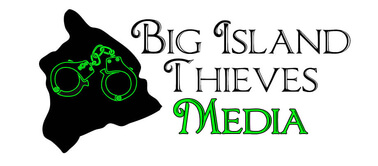The Hawaii Supreme Court convened today by Zoom, and more than 150 students on two islands watched the oral argument in a case they had studied through the Courts in the Community program. Participating schools were Aiea and Moanalua high schools on Oahu, and Molokai High.
This was the second time since the pandemic began that the Courts in the Community outreach program, was conducted remotely. The first was in May.
Since 2012, more than 5,300 students have participated in this educational initiative to enhance their understanding of the Judiciary’s role in government, and see first-hand how it resolves disputes in our democracy.
The court heard State vs. John K. Jardine. Jardine was charged with assault in the second degree. He moved to dismiss the charging document on the basis that it did not “provide notice as to one of the elements of the offense”. The Circuit Court of the First Circuit granted Jardine’s motion and, upon appeal, the Intermediate Court of Appeals affirmed the dismissal. The state appealed the decision to the Supreme Court.
Oral argument was followed by two question-and-answer sessions exclusively for the students – one with the attorneys and another with the justices.
To prepare for the case, the students studied a curriculum developed by the Kamehameha V Judiciary History Center. Attorneys from the Maui County Bar Association and Hawaii State Bar Association volunteered their time and facilitated a moot court activity where students had an opportunity to argue the case themselves.
“Courts in the Community gives students a deeper understanding of the judicial process by taking them through an actual Supreme Court case,” said Chief Justice Mark E. Recktenwald. “We consider it one of our hallmark programs because it advances the understanding of the third branch of government by providing greater transparency, which is vital to the future of our democracy.
“I would like to express our deepest appreciation to the teachers at Aiea, Moanalua, and Molokai high schools, the Maui County Bar Association, the Hawaii State Bar Association, the Hawaii State Bar Foundation, and all the volunteer attorneys who helped make this happen. These invaluable partnerships are what make the program a success,” added Chief Justice Recktenwald.
“The students, teachers, volunteer attorneys, school and court administrators, and so many others contributed to the success of the second virtual Courts in the Community program,” said HSBA President Levi Hookano. “The role of the judiciary and the rule of law is an important part of civics education, and the Hawaii State Bar Association is proud to be a part of this process. The virtual format gave students from different island communities a unique opportunity to engage with each other and share their thoughts with the attorneys arguing the case and learn of the law directly from our supreme court justices.”
The oral argument was broadcast live by Olelo Community Media (https://olelo.org) and Akaku Maui Community Media (https://www.akaku.org). Olelo will rebroadcast the program on the following days/times on cable channel 49 and their website:
- Thursday December 16 at 6 p.m.
- Sunday December 19 at 10:30 p.m.
- Monday December 20 at 8 a.m.
- Tuesday December 21 at 2:30 p.m.
Please contact the Judiciary’s Communications and Community Relations Office at 808-539-4909 for more information.



